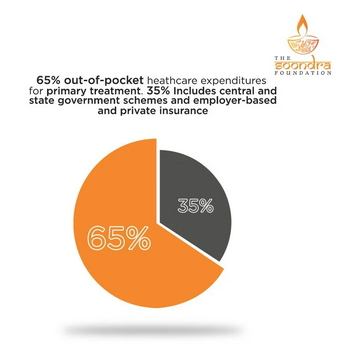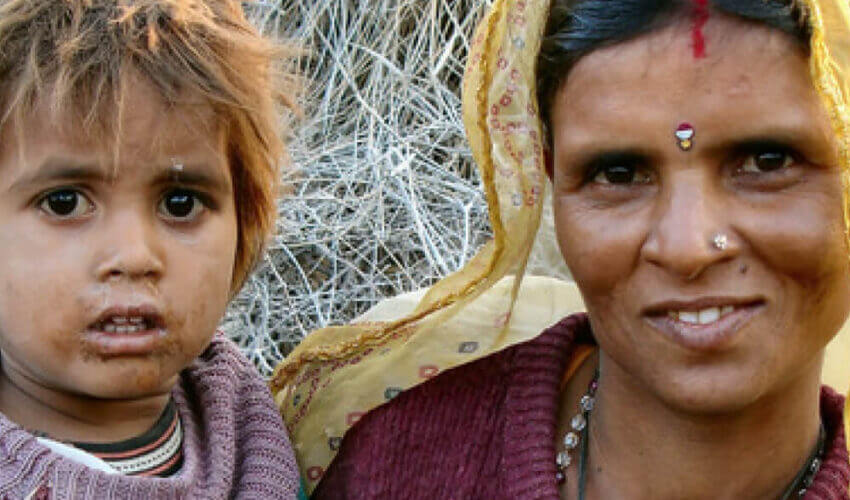Pradeep’s Miracle: Breaking the Cycle of Medical Neglect
Pradeep, a fifteen year old boy had already been absent for many days from school.
Worried, Pradeep’s teachers, two Teach for India Fellows, contacted Uma, Pradeep’s single mother, who lives alone with her son on a meager salary. Pradeep was ill, Uma informed the teachers. He had been throwing up frequently and suffered from near-constant stomach pain.
Despite Pradeep’s alarming symptoms, Uma had not taken him to a hospital. She had no money to pay for a doctor. Earning around $3 a day, her salary is barely enough to cover basic expenses—let alone a medical bill. Uma prayed that the boy would recover on his own.
Working poor parents in India often have to choose between financial security and medical treatment for their children
His teachers were disturbed. They persuaded Pradeep’s mother to check Pradeep into a hospital, where the doctors returned with bad news. Pradeep was suffering from acute pancreatitis, a painful inflammation of the pancreas,. He needed immediate in-patient treatment. His mother knew she could not afford Pradeep’s care. Against medical advice, she pulled him out of the hospital.
This story is far from uncommon among India’s daily wage earners. Making between $2 – $7 a day, these families sit just above India’s poverty line. They are ineligible for government subsidies. Living hand-to-mouth, they simply cannot afford the out-of-pocket cost of medical treatment. Like Pradeep’s mother, these families often refuse medical care—even when their children need it the most. They know they simply do not have the financial resources to access medical care.
The cost of healthcare is prohibitive: it overwhelms the concern families have for medical care.
 hospital, Pradeep’s teachers contacted Soondra, who pledged to sponsor the boy’s care. Empowered by Teach for India and Soondra, Pradeeps mother was able to provide her son with the care he needed to heal—from doctor’s visits, to CT scans, to digestive medicines.
hospital, Pradeep’s teachers contacted Soondra, who pledged to sponsor the boy’s care. Empowered by Teach for India and Soondra, Pradeeps mother was able to provide her son with the care he needed to heal—from doctor’s visits, to CT scans, to digestive medicines.Pradeep’s story highlights the difficult context that Soondra must intervene in: in India, working poor parents often refuse to take their children to the doctors. Without financial assistance, their choices are limited. It takes both Soondra’s funding and the support of our Indian partners (in Pradeep’s case, his Teach for India Fellows) to overcome a patient’s financial and resource barriers, to ensure that each child receives the care they need.
Thanks to Soondra’s funding, Pradeep was able to access medical care through every part of his healing process. Because Soondra has promised to sponsor Pradeep, Uma did not hesitate to bring her son to the doctors. Indeed, when Pradeep’s pain briefly worsened, Uma was able to take Pradeep to the ER for care.
Ultimately, with proper medicines and lifestyle changes, Pradeep was able to avoid surgery—mostly because he had been able to access appropriate care , before the infection worsened.
Less than two weeks after his third visit to the doctors, Pradeep felt better enough to finally return to school, much to the relief of his mother and his teachers. Pradeep’s story speaks to the core of Soondra’s strategy. By providing immediate and direct financial assistance, we can help Indian families of the working poor avoid medical debt. In turn, we can encourage these families to visit the doctors early, before their children require hospitalization or invasive surgery.
In total, the bill for Pradeep’s care came out to just about 600$ USD—more than seven months worth of Uma’s salary.
Faced with her son’s illness, Uma would have been forced to make the difficult choice between her financial wellbeing and Pradeep’s health. Thanks to Soondra, she didn’t have to.


